Can Cats Eat Oyster Mushrooms? The Ultimate Guide
As cat lovers, owners, and enthusiasts, we all want to ensure our feline friends enjoy a diet that’s as diverse, delicious, and nutritious as ours. One question that often arises in the cat community is, “Can Cats Eat Oyster Mushrooms?“.
It’s essential to be informed and cautious about our cats’ diets, as some foods that are safe for humans can pose serious health risks to our feline companions.
This comprehensive guide will explore the concept of oyster Mushrooms and cats. Here, we will study oyster mushrooms’ nutritional benefits and potential risks to cats. Let’s dive into the world of cats and oyster mushrooms and discover what’s best for our furry friends.
What Are Oyster Mushrooms?
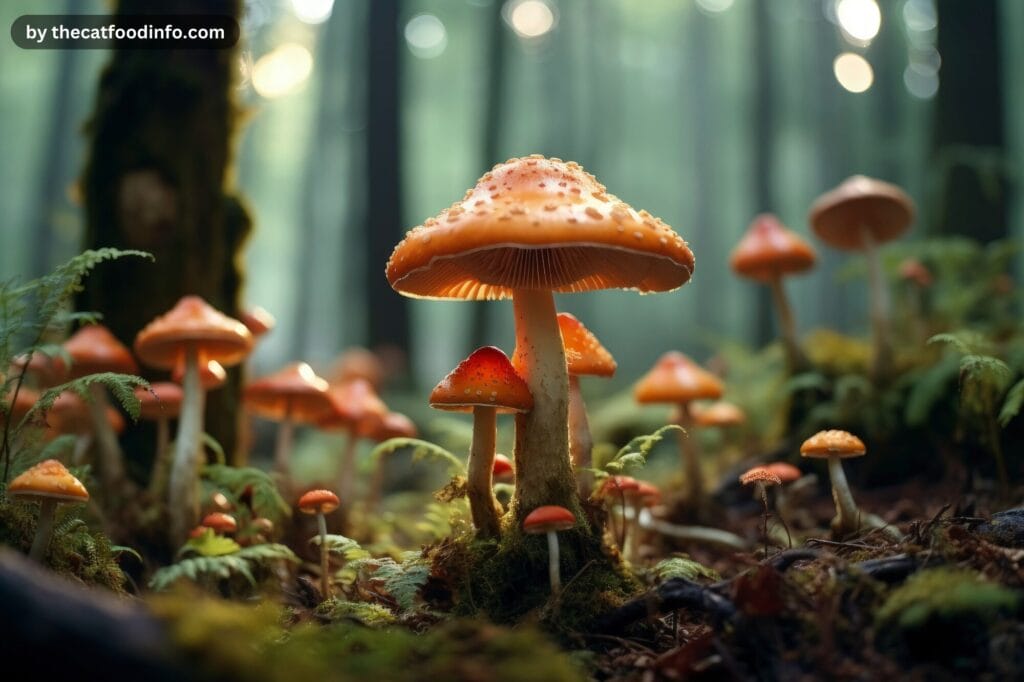
Oyster mushrooms, scientifically known as Pleurotus ostreatus, are a common type of edible fungi. They get their name from their oyster or shell-shaped cap, which ranges from white to gray or tan. Renowned for their delicious taste and velvety texture, these mushrooms are popular in many culinary dishes.
They contain essential nutrients, including vitamins B and D, antioxidants, and minerals. Oyster mushrooms not only contribute to the overall taste of a dish but also add a nutritious punch.
Can Cats Eat Oyster Mushrooms?
In general, cats can consume oyster mushrooms without experiencing any severe health complications. These types of mushrooms are not toxic to cats when cooked. They might give your pet some beneficial nutrients, like vitamins B and D.
However, this does not mean they should become a staple in your cat’s diet. Cats are obligate carnivores, meaning their primary food source should be meat. While they can digest specific plant matter, their bodies cannot process much of it.
Moreover, some cats may have sensitive stomachs and might not react well to mushrooms. As a general rule, mushrooms should be given to cats sparingly and monitored closely for any adverse reaction. Always consult your vet before introducing a new food item into your cat’s diet.
Nutritional Benefits of Oyster Mushrooms
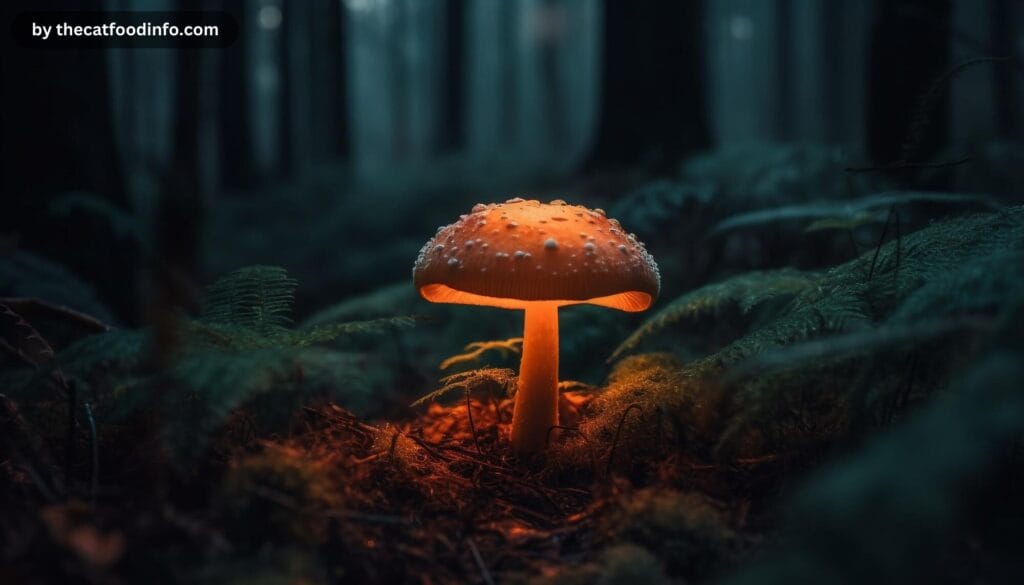
Vitamins and Antioxidants
Oyster mushrooms are a great source of vitamins, particularly B vitamins such as riboflavin, niacin, and pantothenic acid. These vitamins play crucial roles in the metabolic processes of your cat’s body, ensuring healthy skin, coat, and eyes.
Antioxidants in oyster mushrooms, particularly selenium and ergothioneine, benefit cats. Antioxidants help fight oxidative stress in your cat’s body, reducing inflammation and slowing the process of aging.
Minerals
These mushrooms contain essential minerals like potassium, copper, and Iron. Potassium helps maintain the balance of body fluids in cats, ensuring proper hydration. Copper is crucial for developing red blood cells, while Iron helps in oxygen transport and is vital for energy production.
Protein Content
Even though mushrooms can’t replace meat as the primary protein source in your cat’s diet, oyster mushrooms provide a decent amount of protein. This can increase your pet’s protein intake, promoting muscle growth and repair.
It’s important to note that while these nutrients can be beneficial, oyster mushrooms should only be a small part of a cat’s diet. As mentioned earlier, cats are obligate carnivores; most of their nutrients should come from meat. Before adding any new food to your cat’s diet, always consult your vet.
What mushrooms are toxic to cats?
While oyster mushrooms are generally safe for cats, several types can be harmful or even fatal if consumed by cats. These include Amanita mushrooms (also known as death caps), false morel mushrooms, autumn skullcaps, and fly agaric mushrooms.
These mushroom varieties contain toxins that can result in a range of symptoms, from gastrointestinal upset to severe liver damage or neurological issues. Always avoid these mushrooms in your cat’s diet, and be aware of your cat’s outdoor environment, ensuring they do not have access to potentially harmful mushrooms.
Always seek immediate veterinary care if you suspect your cat has ingested a toxic mushroom.
Potential Risks of Feeding Oyster Mushrooms to Cats

Risk of Choking
Oyster mushrooms, mainly when served in large pieces, may pose a choking risk to cats. Their unique texture can make it difficult for some cats to chew correctly, potentially leading to choking.
Digestive Issues
Although oyster mushrooms are not toxic to cats, they can still cause digestive issues in some felines. This is particularly true for cats that have sensitive stomachs. Symptoms of digestive issues might include vomiting, diarrhea, or loss of appetite.
Allergic Reactions
Just like humans, cats can also be allergic to certain types of food, including oyster mushrooms. If your cat experiences symptoms such as itching, swelling, difficulty breathing, or other unusual behaviors after consuming mushrooms, it could indicate an allergic reaction. In such cases, it’s imperative to seek immediate veterinary care.
Misidentification of Mushroom Varieties
One of the most significant risks of feeding mushrooms to cats is the potential for misidentification. Many poisonous mushroom varieties resemble edible ones, and consuming these harmful varieties can seriously affect your cat’s health. It’s always best to verify the type of mushroom before offering it to your cat.
Risks Associated with Raw Mushrooms
Raw oyster mushrooms could contain harmful bacteria that could lead to cat food poisoning. Therefore, it’s always recommended to thoroughly cook any mushrooms before feeding them to your cat.
Remember, while oyster mushrooms can be a fun treat for your feline friend, they should not make up a large part of a cat’s diet. Always consult your vet before introducing new food into your cat’s diet.
What are the symptoms of mushroom poisoning in cats?
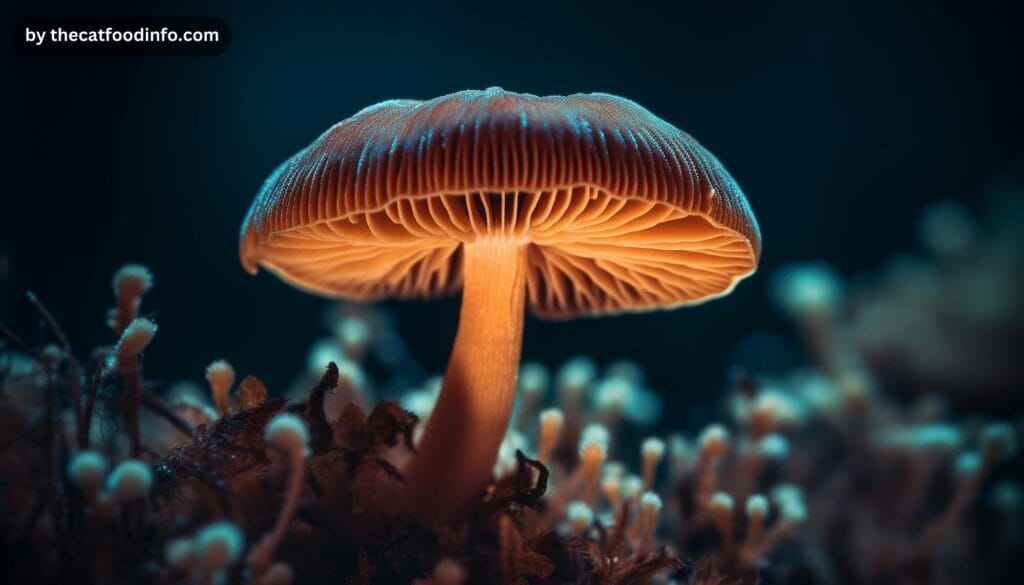
Gastrointestinal Distress
One of the earliest signs of mushroom poisoning in cats is gastrointestinal distress. This can manifest as vomiting, diarrhea, and excessive salivation. The cat may also exhibit signs of abdominal pain, such as hunching over and losing appetite.
Neurological Symptoms
Cats that have consumed toxic mushrooms may show neurological symptoms, which include seizures, tremors, and changes in behavior, such as disorientation or restlessness. In severe cases, they may even lapse into a coma.
Liver and Kidney Damage
Toxic mushrooms can cause significant damage to a cat’s liver and kidneys. Symptoms indicative of such damage can include jaundice (yellowing of the skin and eyes), increased thirst and urination, and unexplained weight loss.
Respiratory Distress
In some cases, mushroom poisoning can result in respiratory distress. Signs of this can include rapid breathing, panting, or difficulty in breathing.
Cardiac Symptoms
Some types of mushroom toxins can affect the heart, leading to irregular heartbeats, a slow heart rate, or even cardiac arrest in severe cases.
Remember, if your cat starts displaying any of these symptoms after consuming mushrooms, seeking immediate veterinary care is critical. Quick and appropriate medical intervention can significantly improve the prognosis for a cat with mushroom poisoning.
How long does it take for poisoning to show up in cats?
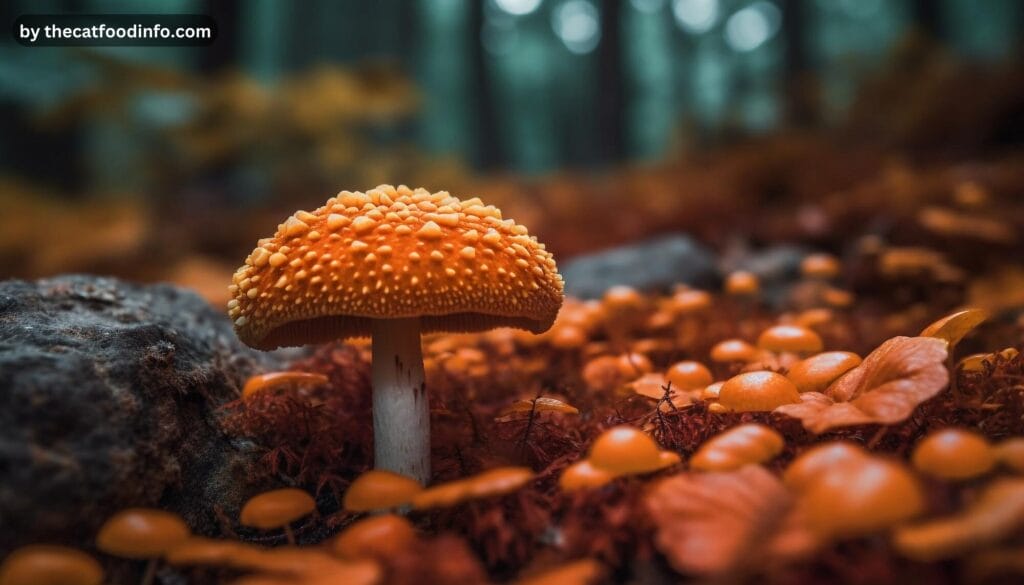
The time it takes for poisoning symptoms to appear in cats can vary greatly depending on the type of mushroom ingested and the amount consumed. For some toxic mushrooms, symptoms can start to show within a matter of hours.
In other cases, it may take several hours to a couple of days before noticeable signs of poisoning appear. This is why it’s so important to seek veterinary attention immediately if you suspect your cat has ingested a toxic mushroom, even if they aren’t showing symptoms immediately. After consuming a toxic mushroom, every minute counts towards your cat’s recovery.
Conclusion
In conclusion, “Can Cats Eat Oyster Mushrooms?” is met with both possibilities and precautions. While oyster mushrooms are not inherently toxic to felines and can provide some nutrients, they pose several risks and should only form a small part of a cat’s diet.
It’s paramount to consult with a vet before introducing them into your cat’s diet and consistently to ensure you correctly identify the mushroom variety. Remember, the health and well-being of your pet should always be the top priority.
FAQs
Why is my cat eating mushrooms?
Cats may eat mushrooms out of curiosity or because they enjoy the texture or taste. Always ensure they’re only consuming safe varieties.
Can cats eat mushrooms from pizza?
While most pizza toppings are safe for cats, mushrooms can pose a risk. It’s best to avoid feeding your cat mushrooms from pizza.
Do mushrooms help cats?
Mushrooms aren’t typically beneficial to cats’ health. They should only be offered occasionally and in small amounts after consulting a vet.
Do mushrooms help cat’s immune systems?
While some mushrooms have immune-boosting properties in humans, there’s insufficient evidence to suggest they have a similar effect on cats. Always consult a vet before introducing new foods into your cat’s diet.
Are mushrooms that grow in the backyard toxic to cats?
Yes, many backyard mushrooms can be toxic to cats. Always prevent your cats from consuming them.

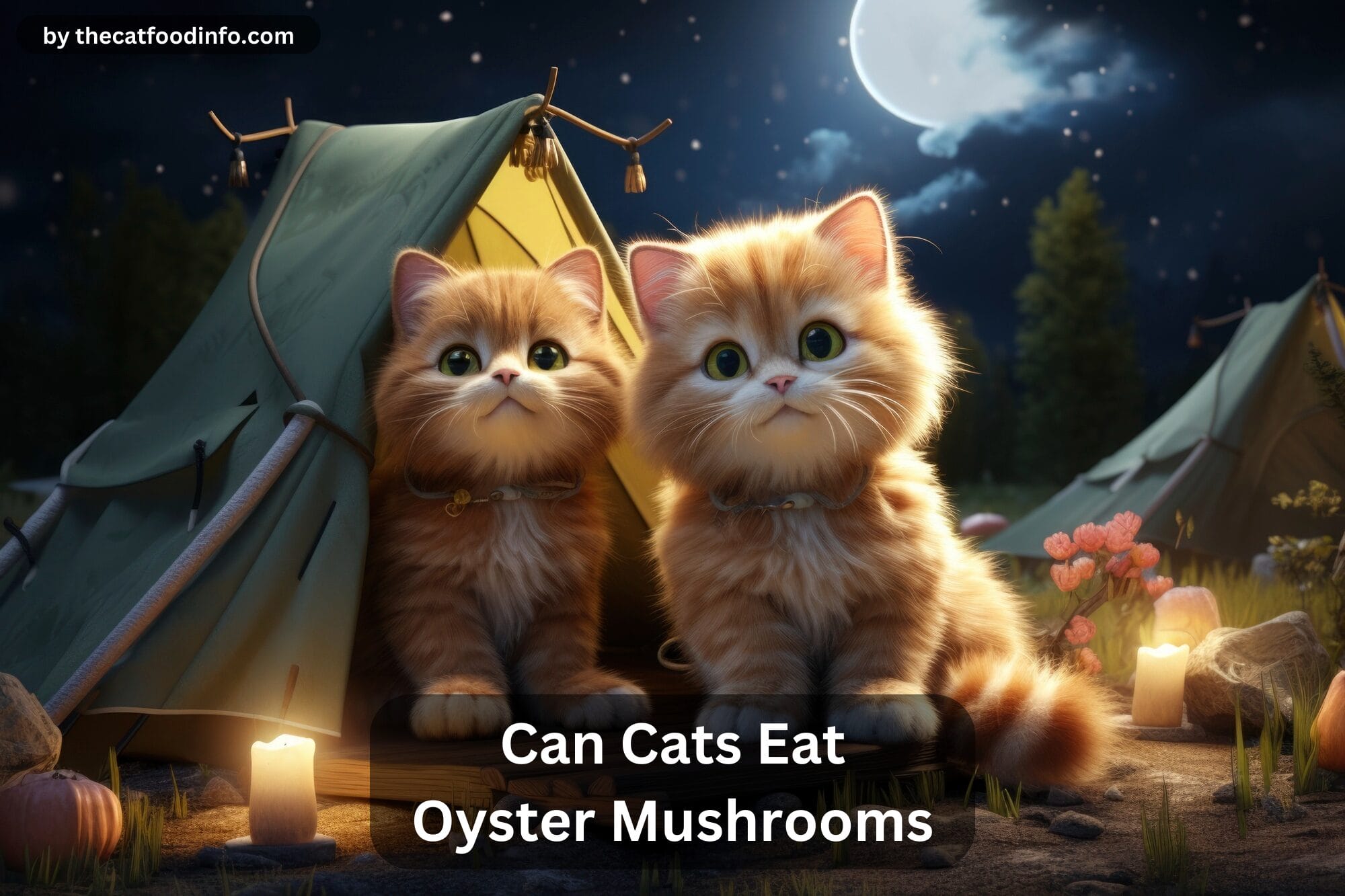


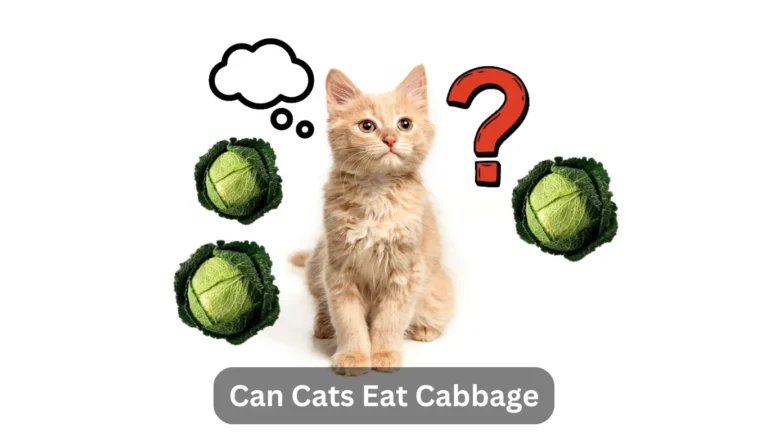
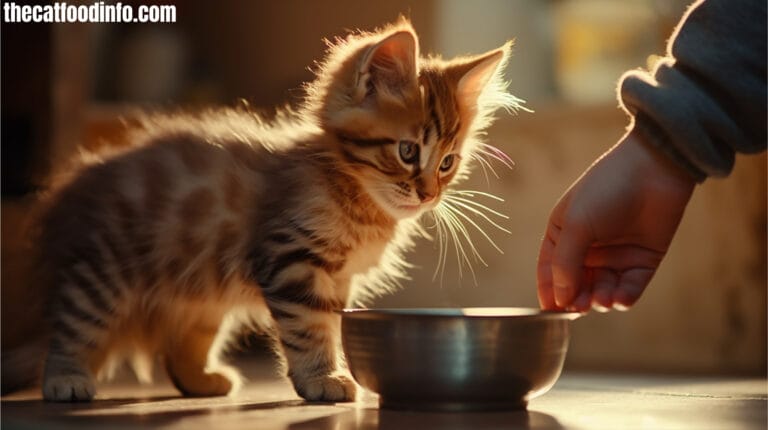


5 Comments